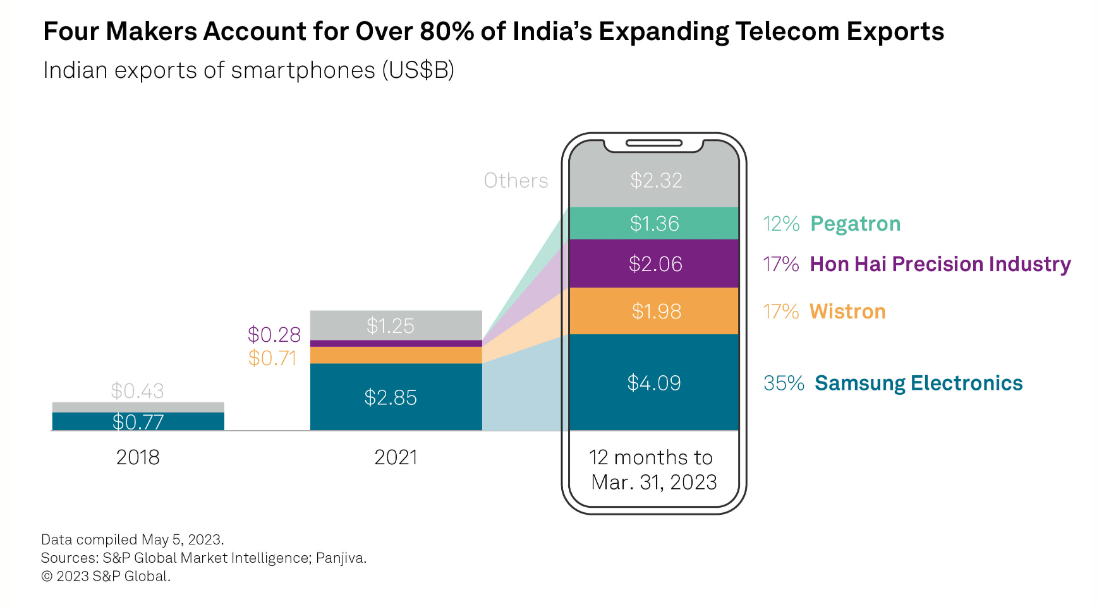
Made-in-India Chromebook laptops will help HP avoid any potential import curbs. Source: Shutterstock
HP and Google will start producing Made in India Chromebook laptops
- Made in India Chromebook laptops will help HP avoid any potential import curbs.
- The move is a win for Prime Minister Narendra Modi’s US$2 billion incentive plan to have tech giants make India their production base.
- The Chromebooks will be built at a facility near Chennai, in southern India, where HP has been making laptops and desktops since 2020.
Not too long after India imposed — and then postponed — a licensing requirement on the import of laptops and personal computers (PCs), leading players began registering for the country’s production-linked incentive (PLI) scheme. Those 40 companies, including Asus, Dell, HP, and Foxconn, plan to start manufacturing in India. In short, the world can anticipate more Made in India laptops and PCs soon.
Last week, local reports indicated that around 30 out of 40 applicants are expected to qualify for the PLI scheme for IT hardware. Those companies committed to making PCs, laptops, tablets, servers, and other equipment worth Rs 4.65 during the scheme period. First introduced in 2020 for electronics makers, PLIs incentivize domestic and foreign companies to invest in Indian manufacturing and meet predetermined output targets.
According to a report by The Economic Times, major IT hardware companies like Dell and HP are participating directly in the program, while other significant players such as HPE, Lenovo, Acer, ASUS, and Thomson are taking part through electronic manufacturing service (EMS) companies with manufacturing facilities in India, such as Flextronics and Rising Star.
In a Monday post on X, Alphabet chief executive Officer Sundar Pichai announced that Google will begin to make its Chromebook laptops in India through a partnership forged with HP Inc. The announcement by Google is the latest among global technology companies wiming to expand their assembly in the key growth market.

The first Indian Chromebooks – coming soon.
HP explained that the partnership will propel a joint vision: to support the digital education ecosystem in India, and to help more students enhance their learning by providing affordable, safe, and high-quality computing devices to education authorities, schools, and institutions.
To top it off, with ChromeOS at its core, these Chromebooks include security and accessibility features, making them ideal for classroom environments.
Where will the Made in India Chromebook laptops be manufactured?
HP has a Flex Ltd facility near Chennai in southern India, where the company has been making laptops and desktops since 2020 – the Chromebooks will be built there. HP noted that the Chromebook production started on October 2, 2023. “Chromebooks are typically priced at the lower end of the market and have thin profit margins, making them sensitive to tariff measures,” Bloomberg pointed out.
That said, local manufacturing allows HP to avoid potential curbs on Chromebook imports. Bani Dhawan, head of education for South Asia at Google, emphasized the company’s ongoing efforts to support the digital transformation of education in India. “The local production of Chromebooks with HP marks an important step in our efforts to support the digital transformation of education in India,” said Dhawan.
“We hope this collaboration will help accelerate the adoption of technology in more schools, so that every student and educator have access to the tools and skills to pursue their potential.”
A rise in tech production in India
Lately, India has been witnessing a significant uptick in technology production. Just last month, government sources claimed that Apple Inc. has plans to scale up production in India by over five-fold to around US$40 billion in the next four to five years. The iPhone maker crossed the US$7 billion production mark in its 2022 financial year.
Apple is already manufacturing iPhones in India and plans to start manufacturing Airpods in 2024. A government official quoted by the PTI News said, “It [Apple] doesn’t have any plans to participate in the IT hardware PLI [scheme]. It may come later, but now, its focus is to scale up existing production levels.”
India is yielding results even when it comes to the country’s ambitious push for self-sufficiency in mobile phone assembling. The South Asian nation shipped two billion domestically assembled smartphones and feature phones between 2014 and 2022 as part of its Make in India initiative.

India’s export industry for telecom equipment, including smartphones, is rapidly expanding. Source: S&P Global
According to market and research firm Counterpoint, a staggering 98% of all mobile phone shipments within the Indian market in 2022 were domestically produced, and 16% of the production was exported, compared to a mere 19% of domestic phones in domestic production in 2014, the year Prime Minister Narendra Modi’s administration assumed office.
Modi has been courting several global players in big tech to make India a new powerhouse.
READ MORE
- 3 Steps to Successfully Automate Copilot for Microsoft 365 Implementation
- Trustworthy AI – the Promise of Enterprise-Friendly Generative Machine Learning with Dell and NVIDIA
- Strategies for Democratizing GenAI
- The criticality of endpoint management in cybersecurity and operations
- Ethical AI: The renewed importance of safeguarding data and customer privacy in Generative AI applications




